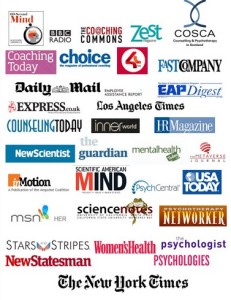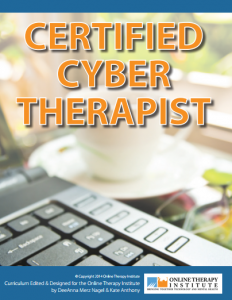 As a student, how can I define my experience of the Foundation Certificate in Cyberculture with the Online Therapy Institute? The reality for me has been a psychologically and emotional passage of time over recent months. Incorporating study with my volunteering role as a Counsellor had been a little discerning initially as I had to incorporate a new routine in to my life where I could apply undivided attention.
As a student, how can I define my experience of the Foundation Certificate in Cyberculture with the Online Therapy Institute? The reality for me has been a psychologically and emotional passage of time over recent months. Incorporating study with my volunteering role as a Counsellor had been a little discerning initially as I had to incorporate a new routine in to my life where I could apply undivided attention.
Returning to study when you’re my age requires an element of careful thought before committing yourself to the required study time. However returning to ‘online study’ is a different and unique experience in comparison to f2f classroom study and required a different level of commitment and understanding of what e-learning is. Defining my experience of the Foundation Course required reflection as to how I felt I had benefitted from the course. In reality I am (was) a former technophobe dedicated to f2f counselling and avoiding technology as much as possible. Studying the course transformed my awareness and understanding of how technology can benefit and enhance the therapeutic experience as a whole. Learning to understand technology and the benefits it conveys altered my perception of its value within the counseling relationship. Opening my mind allowed me to grasp new technology and incorporate it in to my future counselling practice.
A simple tantalizing glimpse in to Cyberculture is offered at the outset of the Foundation Course and doesn’t infer a horrendous sense of study as other courses do. A gentle slide in to a comfy mode of learning is available to a prospective student; yet don’t be fooled into thinking it may be a simple case of whack a few words down in an essay and e-mail it over, this is definitely further from the truth. Be prepared for extensive reading and reflection of the online study materials, learning to understand extensive Cyberculture Terminology and Language can be a difficult task for a slightly more mature student but it is a respected and valuable part of your learning.
The course itself imparts identifying and utilizing basic internet functions which I assure you, you will not be aware of at the initial stages of the course. A simple glimpse in to web 2.0, 3.0 and 4.0 is offered at the end of module one, for myself at the outset I thought we had web 1.0 and that was it!! My learning soon identified for me a new world of exciting knowledge and available skills to be incorporated in to my former technophobic f2f counselling practice. Moving through the modules and identifying methods and locations for communicating in cyberspace was an intense experience. Identifying types of new therapeutic relationships was certainly more than I bargained for, but eagerly lapped up by my innate sense of curiosity and learning.
For me, one of the most important aspects of the whole course was study centered around the Online Change Agent Relationship, Presence and the Online Disinhibition Effect. In f2f counseling, disinhibition and presence are conveyed in a physical sense, in cyberspace it is more an ethereal sense. Identifying and learning to work with online anonymity and fantasy within the therapeutic relationship is a valuable area of study, as when we create fantasy or visualization in f2f counseling, we create a fixed or guided set of boundaries. To utilize this approach online identifies a much wider scale of required boundaries and tighter control of the fantasy world we potentially enshrine ourselves in. Information and learning is provided in a professionally structured and supportive manner which I can only compliment and recommend highly. Experiencing the impact of legislation and liability that is commensurate with cyberculture is certainly a valued area of study which I cannot convey enough.
Technology allows us to communicate and support a wider audience who are unable to physically or emotionally attend f2f counselling. Technology is imprinted in our lives, we now need to learn to grasp and utilize its benefits.
Concluding my experience of the course, I cannot impress enough the quality of the material and the tutor support available. My time studying has been an experience which I would recommend to anyone contemplating studying and introducing cyberculture in to their professional practice.
Take the plunge, you’ll not regret it.
This article first appeared in the Winter 2014 issue of TILT Magazine ~ Therapeutic Innovations in Light of Technology.
Click here to read the entire PDF version of the MY EXPERIENCE The Foundation Certificate In Cyberculture article.
Myke McKay began his training in counselling and sign language in 2008 with COSCA at Perth UHI with a view to working with the Deaf Community. However his passion for counselling took over and he entered University in Dundee under the tutelage of John McLeod. Graduating as a counsellor his role for the last three years has been as a volunteer counsellor based in Dundee working with people who self-harm, suicide, anger and trauma issues. More recently his aim has been to expand these areas utilizing his training from the Online Therapy Institute
Access TILT Magazine archives: http://issuu.com/onlinetherapyinstitute/docs


